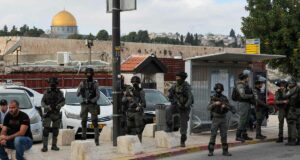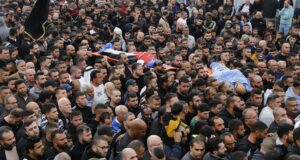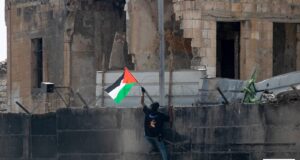Ofra Edelman | Ha’aretz
28 July 2009
The Defense Ministry has recently paid NIS 3.25 million in compensation to Limor Goldstein, 31, who was shot in the head by Border Policemen during an anti-separation fence protest in the West Bank town of Bil’in in 2006.
Goldstein filed a lawsuit against the state over disabilities incurred when a rubber bullet pierced his brain and traveled to his eye socket, his neck and his shoulder.
The lawsuit ended in a deal between the complainant and the state, which was authorized by the Tel Aviv district court. Under the terms of the deal, the state would pay Goldstein NIS 3.25 million while refraining from admitting any responsibility for the event or mentioning the extent of the damage, while Goldstein would be forbidden from filing any lawsuits on the matter in the future.
In the lawsuit, filed in 2007, Goldstein argued that he had suffered physical, psychological and neurological disabilities which posed an obstacle in his ability to earn a living as a lawyer. As part of the lawsuit, Goldstein presented a videotape of the moment in which he was hit by the rubber bullet.
The state reached an agreement with the complainant before having filed a defense with the court, thereby avoiding taking a stance on its culpability in the incident. Signing a deal also allowed the state to circumvent any judgments on it in similar cases.
The Border Police officer who shot Goldstein is also facing a lawsuit, but the case has been delayed since Goldstein petitioned the High Court of Justice in efforts to increase the severity of the charges against him and to compel a criminal investigation against his commanding officer. The petition is set to be heard by the court in November.
Attorney Bishara Jabali, who represented Goldstein, said that “the deal contains an inherent admission of guilt by the state. The security forces really employ excessive brutal force [in Bil’in] lacking in any kind of proportion, which manifests itself in serious, and sometimes lethal results. The movie documenting the moment of the shooting accurately describes the outrageous relationship between the security forces and someone trying to exercise his most classic democratic right to speak his mind.”
 International Solidarity Movement Nonviolence. Justice. Freedom.
International Solidarity Movement Nonviolence. Justice. Freedom.


